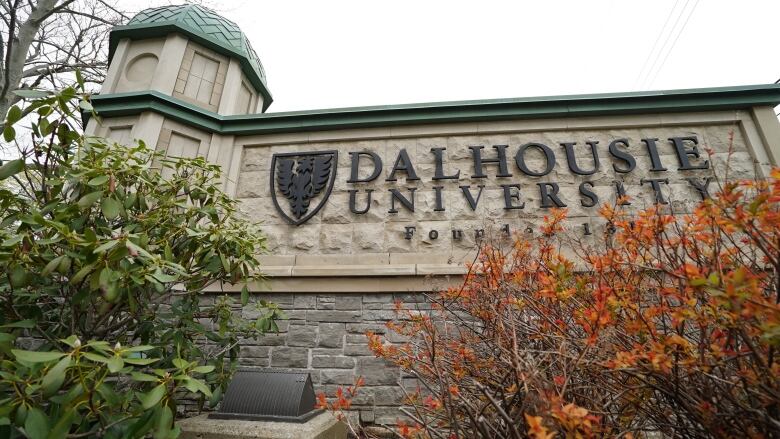As some N.S. universities move online, student group questions if value is still there
'Students want to know: is this worth the payoff for us?' says Clancy McDaniel, head of Students Nova Scotia

The head of an advocacy group for university students in Nova Scotia says many students are questioning whether paying thousands of dollars for a university education is still worth it.
Classes will look very different for the majority of university students in the province this year. Most institutions are focusing on online courses, while some, like Acadia and St. Francis Xavier University, will allow a mix of in-person and virtual classes.
But in most cases, students will have to pay higher tuition than before COVID-19. Several universities have increased tuition for the upcoming yearby three per cent.
"I think folks just in general have a lot of questions and it's a huge investment of time, energy and money, so students want to know:is this worth the payoff for us?" Clancy McDaniel, executive director of Students Nova Scotia, told CBC's Mainstreet this week.
McDaniel said many university students were disappointed with the virtual instruction they received when in-person classes were abruptly cancelled in March.
"There needs to be a bare minimum standard of quality here when it comes to course content that students are receiving," she said.
At the same time, the financial burden on young Canadians is getting heavier, she said. Youth employment dropped to arecord low in Mayand federal supports like the Canadaemergency student benefit are set to run out.
McDaniel said tuition is only part of the problem.
"When I was a student, I was paying $6,000 for tuition, but my total cost for the year, when you factor in rent, textbooks, all that jazz, is closer to $22,000," she said.
McDaniel said some students living in rural communities will still need to pay for housing in Halifax so they can access high-speed internet to complete their online courses.
She's also heard from students who are contemplating deferring their schooling because they can't afford it.
Universities committed to 'highest quality product'
Peter Halpin, executive director of the Association of Atlantic Universities, said online instruction has improved a great deal since the spring thanks to professional development opportunities and more time for professors to prepare.
"There's a perception that has been created that the online or virtual learning experience is going to be automatically inferior to in-classroom learning.Perhaps some could make a case for that, but I think the fact of the matter is today's students are very technologically adept," he said.
Halpin said faculties across the province are committed to "putting forth the highest quality product they possibly can."
He added that Nova Scotians attending university in their homeprovince already get a break on tuition costs in the form of a $1,283 bursary, among other financial supports.
"Nova Scotia universities annually expend over $100 million in student scholarships and bursaries and on-campus employment, so I understand the sensitivity around the cost of tuition, but universities have had significant expenses related to this transition to online learning," he said.
Higher tuition, lower student fees
Several universities in the province have increased tuition this year, but are loweringstudent fees and offering more financial breaks for students.
Students at Dalhousie University will pay three per cent more for tuition this fall, but a spokesperson said for many students that cost will be offset by lowerfees that typically covergym and lab costs.
Students who won't be in Halifax can also now opt out of paying for the mandatory Halifax Transit pass, the university said.
"We're doubling financial aid bursary funding, adding an additional $3 million for domestic and international students who need financial support," Janet Bryson said in an email to CBC News.

Saint Mary's University in Halifax is also increasing tuition by three per cent for domestic students and seven per cent for international students, although aspokesperson said the university is spending $1.5 million more to help students this fall.
"Saint Mary's and the Saint Mary's University Student Association both reviewed and adjusted a number of fees and practices to provide financial relief for students where possible and in recognition of services that are not available to all students. We will continue to do this on a term-by-term basis," Cale Loney said.
Cape Breton University has waived many student fees for the fall semester at acost of $540,000 to theinstitution, said a spokesperson. CBU is alsoincreasing tuition by three per cent this year.

St. Francis Xavier University, meanwhile, isstill requiring students to pay their normal student fees and is alsoincreasing tuition by three per cent.
"The majority of our students will have access to campus throughout the year and as such all students will pay fees as usual," spokesperson Cindy MacKenzie said.
She added that students who arrive early fromoutside the Atlantic bubble to self-isolate won't pay extra for their room or meals during that time.
With files from CBC's Mainstreet












_(720p).jpg)


 OFFICIAL HD MUSIC VIDEO.jpg)
.jpg)



























































































